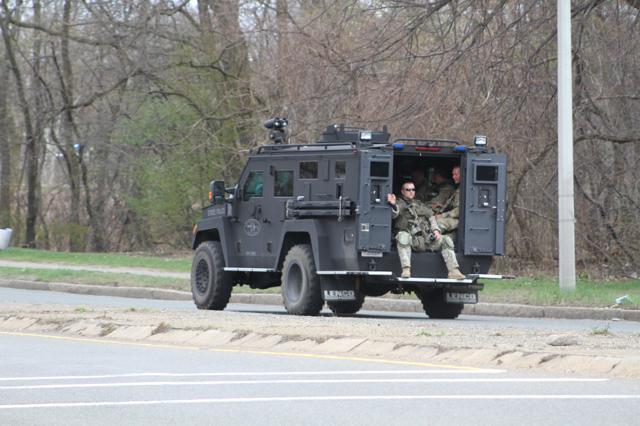Over the last four months, The Atlantic magazine has published a slew of articles lambasting college students for their political oversensitivity. Caitlin Flanagan states, “today’s college kids can’t seem to take a joke.” Greg Lukianoff and Jonathan Haidt claim trigger warnings and protests against microaggressions exacerbate mental health problems. Conor Friedersdorf questions the vitriol of Yale students in their charge to remove a professor who sent a controversial email.
Friedersdorf, in his latest article, took aim at the protesters at the University of Missouri. On Monday, the President was forced to resign for failing to address racism on campus. A few hours later, an Asian American student-journalist was forcefully blocked from taking pictures of the tents set up by protesters. Friedersdorf writes,
“In the video of Tim Tai trying to carry out his ESPN assignment, I see the most vivid example yet of activists twisting the concept of ‘safe space.’ They have one lone student surrounded. They’re forcibly preventing him from exercising a civil right. At various points, they intimidate him. Ultimately, they physically push him. But all the while, they are operating on the premise, or carrying on the pretense, that he is making them unsafe. It is as if they’ve weaponized the concept of ‘safe spaces.’”
Friedersdorf, along with his colleagues at The Atlantic, suggest that we – the collective university student – have gone too far. They claim we are too sensitive to microaggressions, too abrasive in our protests. In colleges throughout the country, what was once a well-meaning movement to police offensiveness on campus, to stand up for the marginalized, has, in their eyes, devolved into a monstrous attack on free speech and open dialogue. We’ve abused the idea of “safe space” to create our own hierarchy of power, in which we silence the voices of others.
Many would be inclined to agree with these views, and it’s not difficult to see why. Friedersdorf is standing up for free speech, for the innocent reporter who is just trying to do his job, for the newly disempowered. That is the narrative he has created, that on college campuses, the world is flipped on its head. That if you disagree with the Social Justice Warriors of your left-leaning university, you will be marginalized, threatened, spat on. According to him, this is the overarching trend in today’s (coddled) American university.
But for a minority taking classes at a university, living in the confines of a college campus, that idea is absurd. This is because Friedersdorf, and the rest of the aforementioned Atlantic writers, fail to understand why racial protests occur. They are not, despite what one might think, a response to specific incidents. At Mizzou, black students were called the n-word in various circumstances, and the media has often portrayed this as the reason for protests. But this is just the spark.
The fuel is more subtle. The fuel is this statistic: 77% of Mizzou students are white. 7% are black. As a minority, you grow up in the reality of these statistics, the reality of living in a country where you’re well outside the cultural and racial norm. But it is your reality. You don’t question it because it’s all you know. College – for a moment – takes the fish out of water. It places you in an intellectual setting where you begin to understand the historic realities that have shaped your life in unspeakable ways. This act of enlightenment, of “being woke,” is a common experience for minorities during college. So it’s not just that black students feel pain over their oppression, it’s that they are just beginning to understand the realities of their situation, the inescapability of it. And when they’re called the n-word on their own campus, in their home, these abstract feelings become concrete horrors. Their reactions, if at times brusque, are a response to an intolerable environment.
That is the broader context that Friedersdorf ignores. He’s right that some people are barred from entering protest zones, yelled over when trying to argue their viewpoints. But that’s the whole point. The Mizzou protesters have, for once, created a space on campus in which they have power, in which they are the authority, in which they can tell their own narrative. To protect that space is their prerogative. For Friedersdorf to call that protection a “weaponization,” as if it is used to subjugate other people, ignores the fact that every other space on campus is unsafe for black students. And that is not an overstatement. On Wednesday, a Mizzou student was arrested for threatening to attack protesters. Mizzou is ablaze with rumors of attacks and acts of intimidation, even chants of “white power.” Many black students feel threatened for their physical safety.
Aside from that, Friedersdorf’s indignation over the protesters’ aggressiveness is misplaced. Yes, the student journalist who was pushed was treated wrongly. But he was simply stopped from taking a picture. For him to be turned into a symbol for free speech and bravery, while the students who opposed him are literally driven off campus in fear of their lives, is representative of how skewed Friedersdorf’s perspective is.
The reactionary Atlantic writers tell us our protests need to be quieter, less abrasive, more accepting. “Compromise” and “discussion” are thrown down like boons to minorities, as if we should be grateful that white people simply listen to us. I cannot speculate as to why The Atlantic has been so up-in-arms about student politics, why they think it necessary to publish so many features on issues confined to the relatively isolated environments of college campuses. But perhaps it’s because for the first time in recent history, privileged, white voices are being drowned out by the shouts of those who have never been heard. And perhaps, that frightens them.



